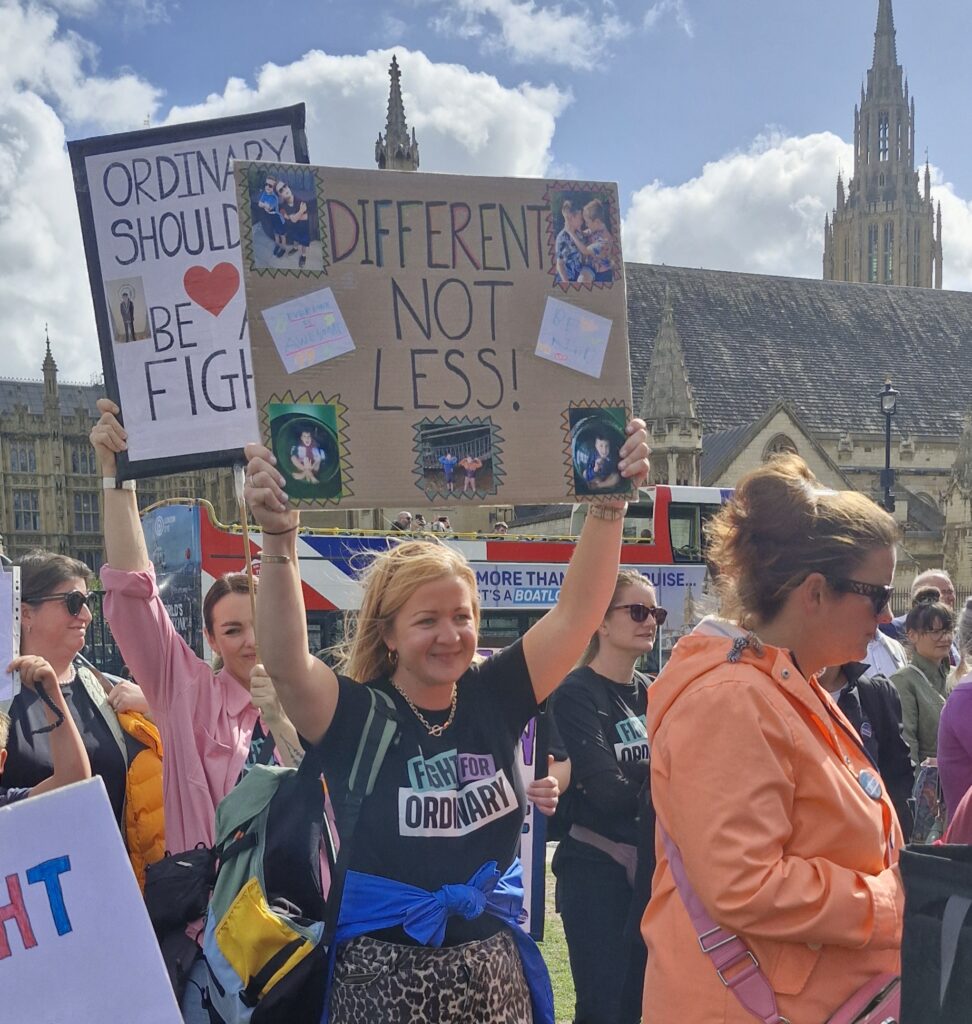Your Voice: “Families are being forced into battles they should never face”
4 mins read
Monday 29 September 2025
Danielle, a parent carer from Essex, shares her twins’ journey through the special educational needs and disabilities (SEND) system and what she told Minister Gould must change for families like hers.
My twins, Teddy and Barney, were born 14 weeks premature. They’ve had a mountain to climb from day one, with multiple diagnoses including Autism, ADHD and developmental delay. Despite everything, they’ve made remarkable progress. They’re bright, capable boys with huge academic potential – but also significant communication, social, emotional and sensory needs.
With education, health and care (EHC) plans and full 1:1 support in place, they thrived in their small village mainstream school. We felt hopeful about their futures. But the move to secondary school turned into a nightmare.
Dehumanising, isolating, and overwhelming appeal process
We contacted 20 schools before finding two specialist provisions we felt could meet their complex needs while still giving them opportunities to access a differentiated mainstream curriculum. We made our wishes clear to the local authority as early as Year 5. But months later, the local authority named a mainstream school that had already expressed grave concerns about being able to keep Teddy and Barney safe.
Our requests for meetings and assessments were ignored. Mediation was ignored. In the end, we were forced into an exhausting appeal process, fighting two cases at once while caring for the boys and trying to keep working. The process felt utterly dehumanising, isolating, and overwhelming. No parent should ever have to go through it.
Thankfully though, through working closely with Teddy and Barney’s Headteacher and classroom team at their primary school, engaging with the wonderfully supportive SENCO at the ‘named’ mainstream secondary school, working with our personally-funded educational psychologist, valuable advice from SENDIASS, personally funded legal training from IPSEA, and with the overwhelming support of the community of friends in related fields willing to provide evidence statements and advice, we made it through with a positive outcome. But so many families aren’t as fortunate.
I know children right now who are still at home, without education, because of systemic failures.
Change is possible
And sadly, Teddy and Barney’s story is not unique. Families are left chasing answers, ignored, and treated as adversaries rather than partners. At Bright Futures Essex, the parent-led support group I run, we hear the same frustrations again and again. Parents don’t want a fight – they want to be listened to, given honest advice, and supported with compassion.
From listening to families, and teachers, we have identified the following things that must change:
- Collaboration and Communication – Parents and schools need honest, timely communication and a culture of trust. We should be working with the local authority, not battling against it.
- Teacher Training – Teachers need practical, specific training on Autism, ADHD, PDA, language delay and trauma-informed strategies. Without this, “inclusion” is just a word on paper.
- Attendance – The one-size-fits-all approach to attendance does not work. We need to stop rewarding attendance as it is an absolute lottery and has nothing to do with ability or attitudes to learning. This is a divisive strategy and bares little connection to effort or attainment. We are approaching it all wrong. By starting with the goal of 100% attendance we are setting young people up to fail. We should be looking at why they are not attending school and how we can make school feel safe and accessible.
The single biggest change that could make a real difference would be the reintroduction of the Specialist Teaching Service. Specialist teachers are experts who work directly with children, support teachers, and guide families with real strategies. They could bridge the gap while families wait for assessments, and give schools the tools they need to support children immediately.
Having a voice at the highest level

On Monday 15 September, I was honoured to meet Minister Gould after the SEND Rally. Thank you to Contact for helping give me this platform.
She listened with empathy to my experiences and other SEND families, and later in the Westminster Hall debate, she committed to working with families going forward. That gave us a glimmer of hope — but councils must step up right now.
Our children deserve a system that meets their needs, values their potential, and gives them the futures they deserve.